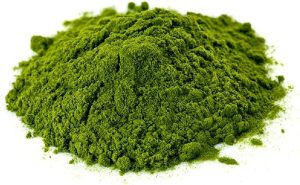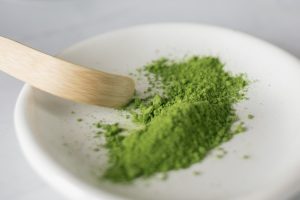
- Overview of CoQ10
- Brief History of CoQ10
- Functions of CoQ10
- Recommended Daily Intake (RDI), Recommended Dietary Allowance (RDA), Adequate Intake (AI), or Reference Nutrient Intake (RNI) for CoQ10
- Deficiency of CoQ10
- Food Sources of CoQ10 and Where to Get It From
- CoQ10 and Its Interaction with Other Medications
- Websites and Articles to Delve into the Benefits of CoQ10
- Disclaimer
Overview of CoQ10
Coenzyme Q10 (CoQ10) is a naturally occurring compound found in the cells’ mitochondria, playing a crucial role in energy production. As a potent antioxidant, CoQ10 helps protect cells from oxidative damage and supports various physiological functions.
While the body produces CoQ10, its levels may decrease with age or certain medical conditions.
CoQ10 is available as a supplement and is promoted for its potential benefits in supporting cardiovascular health, reducing oxidative stress, and enhancing cellular energy production.
Research suggests potential applications in conditions like heart disease, migraines, and age-related decline. However, individual responses vary, and consulting with a healthcare professional is advisable before incorporating CoQ10 supplements into one’s regimen.
Brief History of CoQ10
The history of Coenzyme Q10 (CoQ10) dates back to its discovery in the late 1950s. Here is a brief overview:
- Discovery:
- In 1957, Dr. Frederick L. Crane and his team isolated CoQ10 from beef heart mitochondria. They initially named it “ubiquinone” due to its ubiquitous presence in living cells.
- Identification and Structure:
- In 1958, Professor Karl Folkers and his collaborators identified the structure of CoQ10. Folkers played a significant role in isolating and characterizing this coenzyme.
- Biological Significance:
- In the following years, researchers recognized CoQ10’s crucial role in the electron transport chain within mitochondria, where it participates in cellular energy production.
- Commercial Production:
- By the 1970s, CoQ10 supplements became commercially available, initially in Japan. It gained popularity as a dietary supplement and for potential health benefits.
- Medical Research:
- Subsequent decades saw extensive research into CoQ10’s potential therapeutic applications. Studies explored its role in cardiovascular health, neurodegenerative diseases, and other medical conditions.
- Recognition in Cardiology:
- CoQ10 gained recognition in cardiology for its potential benefits in heart failure and cardiovascular diseases. It is sometimes used as an adjunctive treatment in certain cardiac conditions.
- Dietary Supplement Market:
- CoQ10 supplements became widely available globally, and its use expanded beyond medical applications to general health and wellness.
| Year | Milestone |
|---|---|
| 1957 | Isolation of CoQ10 from beef heart mitochondria by Dr. Frederick L. Crane and team; initially named “ubiquinone.” |
| 1958 | Identification of CoQ10’s structure by Professor Karl Folkers and collaborators. |
| 1970s | Commercial availability of CoQ10 supplements, starting in Japan. |
| 1970s-1980s | Recognition of CoQ10’s role in the electron transport chain and cellular energy production. |
| Subsequent Decades | Extensive medical research on potential therapeutic applications, especially in cardiovascular health and neurodegenerative diseases. |
| Cardiology Recognition | Acknowledgment of CoQ10’s potential benefits in heart failure and cardiovascular diseases; used as adjunctive treatment. |
| Global Availability | CoQ10 supplements widely available globally, expanding beyond medical applications to general health and wellness. |
Today, CoQ10 continues to be a subject of scientific research, and its potential benefits are explored in various health contexts. While it is naturally produced in the body, dietary sources include meat, fish, and whole grains. CoQ10 supplements are commonly used, but individuals are advised to consult healthcare professionals for personalized guidance, especially if considering supplementation for specific health concerns.
Functions of CoQ10
Coenzyme Q10 (CoQ10) plays a crucial role in various cellular functions, primarily in the production of energy within the mitochondria. Here are the key functions of CoQ10:
- Energy Production:
- CoQ10 is a vital component of the electron transport chain in mitochondria, where it facilitates the production of adenosine triphosphate (ATP), the primary energy currency of cells.
- Antioxidant Activity:
- CoQ10 acts as an antioxidant, protecting cells from oxidative damage by neutralizing free radicals. This antioxidant function helps maintain cellular integrity and may contribute to overall health.
- Cellular Respiration:
- CoQ10 is involved in cellular respiration, the process by which cells convert nutrients into energy. It aids in the transfer of electrons during oxidative phosphorylation.
- Heart Health:
- The heart, being an energy-demanding organ, relies heavily on CoQ10. CoQ10 supplementation is sometimes used to support cardiovascular health, especially in conditions like heart failure and hypertension.
- Neuroprotection:
- CoQ10 has shown potential neuroprotective effects. It may help protect neurons from oxidative damage and support overall brain health.
- Muscle Function:
- CoQ10 plays a role in maintaining muscle function. It is essential for the energy needs of skeletal muscles, and its levels may impact muscle performance.
- Immune System Support:
- CoQ10 may support the immune system by enhancing cellular energy production in immune cells, aiding in their optimal functioning.
- Anti-Inflammatory Effects:
- Some research suggests that CoQ10 may have anti-inflammatory effects, contributing to its potential role in conditions associated with inflammation.
- Mitochondrial Health:
- CoQ10 is crucial for the health of mitochondria, the cellular powerhouses. It helps optimize mitochondrial function and may mitigate oxidative stress in these organelles.
- Aging and Longevity:
- While the exact relationship is still under investigation, CoQ10 has been studied for its potential role in mitigating age-related decline and promoting longevity.
While CoQ10 is naturally produced in the body, its levels may decrease with age or certain medical conditions. CoQ10 supplements are commonly used to address deficiencies or to support specific health concerns. As with any supplement, individuals are advised to consult with healthcare professionals for personalized advice based on their health status.
Recommended Daily Intake (RDI), Recommended Dietary Allowance (RDA), Adequate Intake (AI), or Reference Nutrient Intake (RNI) for CoQ10
CoQ10, just like many other non-essential compounds, has no Recommended Dietary Allowance (RDA), Recommended Daily Intake (RDI), Adequate Intake (AI), or Reference Nutrient Intake (RNI). CoQ10 is not classified as an essential nutrient, and the body can synthesize it.
However, CoQ10 is naturally present in various foods, and the body can also produce it endogenously. The levels of CoQ10 can be influenced by factors such as age, health status, and medications.
When considering CoQ10 supplementation, individuals are advised to consult with healthcare professionals for personalized guidance. If you have specific health concerns or conditions that may benefit from CoQ10 supplementation, a healthcare provider can assess your individual needs and recommend an appropriate dosage.
It’s important to note that nutritional guidelines and recommendations may evolve, so it’s advisable to check with more recent and specific sources or consult with a healthcare professional for the latest information.
Deficiency of CoQ10
Coenzyme Q10 (CoQ10) deficiency is a rare condition that can occur due to various factors. CoQ10 is essential for energy production in cells and acts as an antioxidant. While the body can synthesize CoQ10, deficiencies may arise under certain circumstances. Factors contributing to CoQ10 deficiency include:
- Age:
- CoQ10 levels tend to decrease with age, and older individuals may have lower concentrations compared to younger adults.
- Genetic Disorders:
- Some rare genetic disorders can impair the body’s ability to produce or utilize CoQ10 efficiently, leading to deficiency.
- Nutritional Deficiencies:
- Inadequate intake of nutrients involved in CoQ10 synthesis, such as certain B-vitamins, may contribute to deficiencies.
- Mitochondrial Diseases:
- Conditions affecting mitochondrial function may result in CoQ10 deficiencies since CoQ10 plays a crucial role in mitochondrial energy production.
- Certain Medications:
- Some medications, such as statins used to lower cholesterol, can inhibit the synthesis of CoQ10. Long-term use of these medications may lead to lower CoQ10 levels.
Symptoms of CoQ10 deficiency can vary but may include:
- Fatigue
- Muscle weakness
- Exercise intolerance
- Cognitive impairment
- Cardiovascular issues
- Immune system dysfunction
Supplementation with CoQ10 is a common approach to address deficiencies. However, individuals considering CoQ10 supplementation should consult with healthcare professionals for guidance on dosage and potential interactions, especially if they are taking medications or have existing health conditions.
While CoQ10 deficiency is relatively rare, it underscores the importance of a balanced diet and overall health for optimal CoQ10 levels. Individuals experiencing symptoms suggestive of a deficiency should seek medical advice for proper evaluation and management.
Food Sources of CoQ10 and Where to Get It From
Coenzyme Q10 (CoQ10) is present in various foods, particularly in certain meats and fish. Including these foods in your diet can contribute to CoQ10 intake. Here are some common food sources of CoQ10:
- Organ Meats:
- Beef Liver: Liver is one of the richest sources of CoQ10.
- Meat:
- Beef: Other cuts of beef also contain CoQ10, although in smaller amounts compared to liver.
- Pork: Pork is another meat source of CoQ10.
- Fatty Fish:
- Salmon: Salmon is a good source of CoQ10, especially when consumed as a fatty fish rich in omega-3 fatty acids.
- Trout: Trout is another fish that contains CoQ10.
- Chicken:
- Chicken: Both dark and white meat of chicken contain CoQ10.
- Sardines and Mackerel:
- Sardines and Mackerel: These fatty fish are rich in CoQ10.
- Vegetables:
- Spinach and Broccoli: While vegetables contain lower amounts of CoQ10 compared to meats, spinach and broccoli are among the plant-based sources.
- Whole Grains:
- Whole Grains: Whole grains, such as wheat germ, also contain CoQ10.
- Nuts and Seeds:
- Sesame Seeds and Pistachios: Some nuts and seeds contain CoQ10, with sesame seeds and pistachios being notable examples.
- Oils:
- Canola and Soybean Oil: Certain oils, such as canola and soybean oil, contain CoQ10.
It’s important to note that the amounts of CoQ10 in these foods can vary, and the bioavailability of CoQ10 from food sources may be lower than from supplements. Additionally, cooking methods can impact CoQ10 levels, and some losses may occur during food processing.
While CoQ10 is naturally produced in the body, dietary sources contribute to overall intake. If considering CoQ10 supplements, it’s advisable to consult with healthcare professionals for personalized guidance based on individual health conditions and needs.
CoQ10 and Its Interaction with Other Medications
Coenzyme Q10 (CoQ10) is generally considered safe for most people when taken as directed, either through dietary sources or supplements. However, there are potential interactions between CoQ10 and certain medications that individuals should be aware of. Here are some considerations:
- Statins:
- Statins, medications used to lower cholesterol, can reduce CoQ10 levels in the body. Supplementing with CoQ10 may be beneficial for individuals taking statins to address potential deficiency.
- Blood Thinners (Anticoagulants):
- CoQ10 may have mild antiplatelet effects. When combined with anticoagulant medications, such as warfarin (Coumadin), it could potentially increase the risk of bleeding. It’s crucial to coordinate CoQ10 supplementation with healthcare providers.
- Blood Pressure Medications:
- CoQ10 might lower blood pressure slightly. If taken along with antihypertensive medications, it could enhance the blood pressure-lowering effects. Monitoring blood pressure and consulting with healthcare providers are advisable.
- Diabetes Medications:
- CoQ10 may interact with diabetes medications, especially those affecting blood sugar levels. Individuals with diabetes should discuss CoQ10 supplementation with their healthcare team.
- Cancer Treatments:
- CoQ10 might interfere with certain cancer treatments, particularly those targeting mitochondrial function. Cancer patients undergoing treatment should consult with their oncologists before using CoQ10 supplements.
- Thyroid Medications:
- CoQ10 could potentially interact with medications for thyroid disorders. It’s essential to discuss CoQ10 supplementation with healthcare providers, especially if adjustments to thyroid medications are needed.
- Medications Metabolized by the Liver:
- CoQ10 is metabolized in the liver, and interactions may occur with medications metabolized by the same enzymes. Consulting with healthcare providers is advisable for individuals taking such medications.
As with any supplement, individuals should inform their healthcare providers about all medications, including over-the-counter drugs and dietary supplements, to assess potential interactions and avoid adverse effects. Dosage adjustments or closer monitoring may be necessary in some cases. It’s crucial for individuals to communicate openly with their healthcare team to ensure safe and effective use of CoQ10 in conjunction with other medications.
Websites and Articles to Delve into the Benefits of CoQ10
To explore the benefits of Coenzyme Q10 (CoQ10), you can refer to reputable websites and articles that provide reliable information on nutrition, health, and scientific research. Here are some sources you can delve into:
- National Center for Complementary and Integrative Health (NCCIH):
- Website: NCCIH – Coenzyme Q10
- The NCCIH provides an overview of CoQ10, including information on its uses, safety, and potential benefits.
- Mayo Clinic:
- Website: Mayo Clinic – Coenzyme Q10
- Mayo Clinic offers consumer-friendly information on CoQ10, including its uses, effectiveness, and safety.
- WebMD:
- Website: WebMD – Coenzyme Q-10
- WebMD provides information on CoQ10, its uses, side effects, and potential interactions with medications.
- Examine.com:
- Website: Examine.com – Coenzyme Q10
- Examine.com offers a detailed overview of CoQ10, including its benefits, dosage, and scientific research.
- Harvard Health Publishing – Harvard Medical School:
- Website: Harvard Health Blog – Coenzyme Q10: Miracle or mirage?
- This Harvard Health Blog post discusses the potential benefits of CoQ10 and explores its use in various health conditions.
- ConsumerLab.com:
- Website: ConsumerLab.com – CoQ10 and Ubiquinol Supplements Review
- ConsumerLab.com provides reviews and comparisons of CoQ10 supplements, including information on quality and effectiveness.
- PubMed – National Library of Medicine:
- Website: PubMed – Coenzyme Q10 Research
- Explore scientific articles and research studies related to CoQ10 by using PubMed, a database maintained by the National Library of Medicine.
Always ensure that the sources you consult are reputable and evidence-based. Additionally, consulting with healthcare professionals or registered dietitians is recommended for personalized advice, especially if considering CoQ10 supplements or if you have specific health concerns.
Disclaimer
The information is solely provided for educational purposes. It is not intended to diagnose, treat, cure, or prevent any disease. Seek the advice of your physician or qualified healthcare provider with any questions you may have regarding a medical condition at all times. Never disregard professional medical advice because of something you have read or learned from this article.






